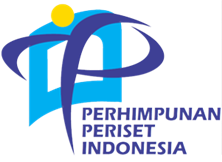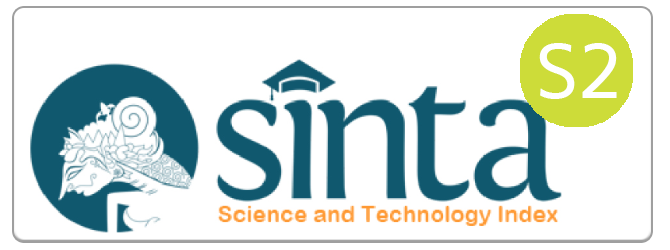Manajemen Integrasi Kurikulum pada MA Al-Mumtaz Gunungkidul Daerah Istimewa Yogyakarta
Abstract
The low quality of human resources and inadequate facilities in madrasas are new problems for educational institutions based on an integrated curriculum. If these conditions continue to be allowed, then the goals of Islamic education will experience obstacles. This qualitative research was conducted to analyze the integrated curriculum management, as well as the strengths and weaknesses of its implementation at MA Al-Mumtaz Gunungkidul Special Region of Yogyakarta. Based on reliable sources of document data and sources, through observation, documentation, and in-depth interviews, inductive analysis was carried out to find meaningful final findings of research results. The results show that at MA Al-Mumtaz, 3 integrated curricula have been implemented, namely, the National curriculum, the Islamic Boarding School curriculum, and the Entrepreneurship curriculum. Management principles are also implemented, starting from curriculum planning by the Pondok Pesantren component at the beginning of each new school year. The implementation of the curriculum is assigned to the coordinators of the education sub-section with its members to students. The implementation of the curriculum is based on the autonomy of the foundation, an integrated curriculum system, a curriculum modification system, and the primacy of affective assessment. Supervision is carried out at the beginning, middle, and end of the school year. Its strengths are the one-way command system, the creation of independent human resources, and the consistency of regulations at MA Al-Mumtaz. Meanwhile, its weaknesses are found in organizing educators and education personnel, as well as community acceptance.
Keywords
Full Text:
PDFReferences
Bueraheng, I. (2010). Manajemen kurikulum program pendidikan agama Islam kelas tsanawiyah di madrasah azizstan Thailand. Universitas Negeri Yogyakarta.
Creswell, J. W., Fawaid, A., & Pancasari, R. K. (2016). Research design : pendekatan kualitatif, kuantitatif, dan campuran (cetakan ke). Pustaka Pelajar.
Dawam, A., & Ta’arifin, A. (2005). Manajemen Madrasah Berbasis Pesantren (K. Duroi (Ed.)). Listafarista Putra.
Fernandes, R. (2019). Relevansi Kurikulum 2013 dengan kebutuhan Peserta didik di Era Revolusi 4.0. Jurnal Socius: Journal of Sociology Research and Education, 6(2). https://doi.org/10.24036/scs.v6i2.157
Meiriyanti, R., & Santoso, A. (2017). Implementasi kurikulum berbasis Entrepreneurship untuk mencetak generasi pengusaha dalam menghadapi bonus demografi. Fokus Ekonomi, 12.
Muhammad, I. (2017). The Strategy of Internalizing The Values of The Characters In Al-Mumtaz Islamic Boarding School. Attarbiyah: Journal of Islamic Culture and Education, 2(1), 79–103. https://doi.org/10.18326/attarbiyah.v2i1.
Na’imah. (2018). Islamic Character Education Management in Developing the Empathy Values for Students Islamic of State University of Sunan Kalijaga Yogyakarta. Jurnal Dinamika Ilmu, 18(2).
Nawawi, H. (2003). Manajemen Strategik Organisasi Non Profit Bidang Pemerintahan dengan Ilustrasi dalam Bidang Pendidikan. Gadjah Mada University Press.
Nugroho, S. (2008). Manajemen kurikulum kelas internasional di SMA negeri 1 kota Yogyakarta. Universitas Negeri Yogyakarta.
Pola Pengembangan Pondok Pesantren. (n.d.). Departemen Agama RI, Direktorat Jenderal Pembinaan Kelembagaan Agama Islam, Direktorat Pembinaan Perguruan Agama Islam, Proyek Peningkatan Pondok Pesantren, 2000111.
Rusman. (2012). Manajemen Kurikulum. Rajawali Press.
Saimroh. (2020). Pembentukan Karakter Kemandirian Santri pada Madrasah Berbasis Pesantren di Madrasah Aliyah Al-Hamidiyah Jawa Barat. SMART, 6(2), 173–186.
Sugiyono. (2011). Metode Penelitian Kuantitatif, Kualitatif dan R&D. Bandung:Alfabeta.
Sulthon, M., & Khusnurdilo. (2003). Manajemen Pondok Pesantren. Diva Pustaka.
Terry, G. R. (2006). Prinsip-Prinsip Manajemen. Bumi Aksara.
Zulfa, N. C., & Pardjono, P. (2013). Manajemen Kurikulum Madrasah Aliyah Program Keagamaan MAN 1 Surakarta. Jurnal Akuntabilitas Manajemen Pendidikan, 1(2). https://doi.org/10.21831/amp.v1i2.2396
DOI: https://doi.org/10.18784/smart.v8i1.1565
Refbacks
- There are currently no refbacks.
Copyright (c) 2022

This work is licensed under a Creative Commons Attribution 4.0 International License.







